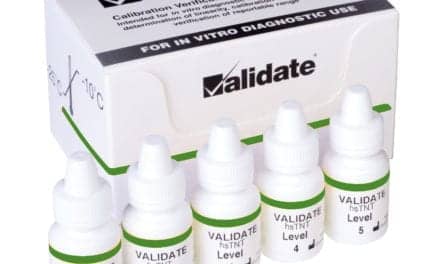Six leading healthcare organizations representing the laboratory testing community and the health system sector have pledged to take action to improve diagnostic quality and safety by joining the Coalition to Improve Diagnosis, which already includes many of the most prominent organizations in healthcare and patient advocacy.
Every 9 minutes, someone in a US hospital dies as the result of a medical diagnosis that was wrong or delayed. Researchers estimate that each year up to 80,000 deaths in US hospitals can be attributed to inaccurate or delayed diagnoses.
Convened and led by the Society to Improve Diagnosis in Medicine (SIDM), the Coalition to Improve Diagnosis is the only collaboration of diverse healthcare organizations singularly focused on improving the diagnostic process. Together, the organizations are working to find solutions that enhance diagnostic quality and safety, reduce harm, and ultimately ensure better health outcomes for patients.
New members joining the coalition are the American Society for Clinical Laboratory Science (ASCLS) Ballad Health, Baystate Health, the Joint Commission, Northwell Health, and the Washington Patient Safety Coalition. The latest additions come on the heels of the September 2018 launch of the coalition’s mission ‘ACT for Better Diagnosis,’ which aims to improve the diagnostic process by calling on organizations to identify and spread practical steps to better ensure diagnoses are accurate, communicated, and timely.
“For too long, improving diagnostic quality and safety has not been on the radar of health organizations,” notes Paul L. Epner, cofounder and chief executive officer of SIDM. “But that is changing, and it’s exciting to now see that a groundswell is building and taking hold across all sectors of healthcare. These healthcare leaders are recognizing that improving the diagnostic process saves lives, reduces harm, and will save costs to the system.”
The following six organizations have newly committed to join in the coalition:
- American Society for Clinical Laboratory Science (ASCLS). ASCLS develops programs and products focused on educating patients and healthcare professionals to prevent wrong or delayed medical diagnoses associated with laboratory testing.
- Ballad Health. Ballad Health is identifying evidence-based criteria for the appropriate testing of hospital-acquired infections, establishing appropriate use of CT and MRI imaging to improve stroke diagnoses, and creating an approach to accurately and quickly identify patients with sepsis.
- Baystate Health. Baystate Health has made diagnostic excellence a major priority of its comprehensive patient safety program. The organization is committed to identifying opportunities to improve the diagnostic process and to implement solutions that will reduce harm from misdiagnosis. In order to achieve that goal, the organization has created interdisciplinary teams to study and act in many areas, including clinical reasoning education, incident identification and review, electronic clinical decision support, quality improvement activities, and clinical pathway development.
- The Joint Commission. The nation’s largest healthcare accreditor, the Joint Commission provides best practices and rigorous standards to help organizations improve patient safety and quality of care. As part of its national patient safety goals, the Joint Commission is exploring current best practices to ensure appropriate follow-up of diagnostic tests and consultations ordered as part of the diagnostic process.
- Northwell Health. Northwell Health developed and deployed trials to reduce diagnostic errors within its ambulatory clinics, emergency department, and inpatient settings by focusing on the roles of the patient, family, and caregiver with a scripted ‘teach-back’ intervention.
- Washington Patient Safety Coalition. In 2018, the WPSC voted to elevate diagnostic improvement as one of its major programmatic goals for 2018–2019. To that end, the coalition has organized a workgroup of stakeholders dedicated to the goal, and is developing podcasts, blogs, and other resources on the topic.
Also participating in the coalition are the Agency for Healthcare Research and Quality, Centers for Disease Control and Prevention, Centers for Medicare & Medicaid Services, and Veterans Health Administration.
For further information, visit Better Diagnosis.





